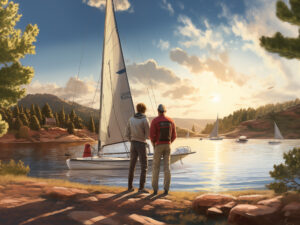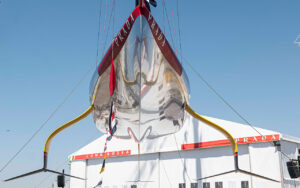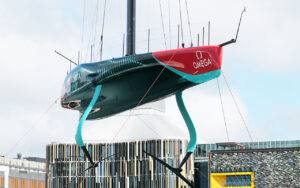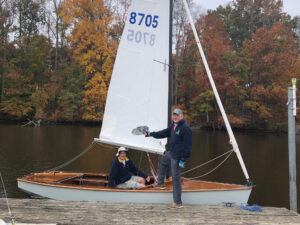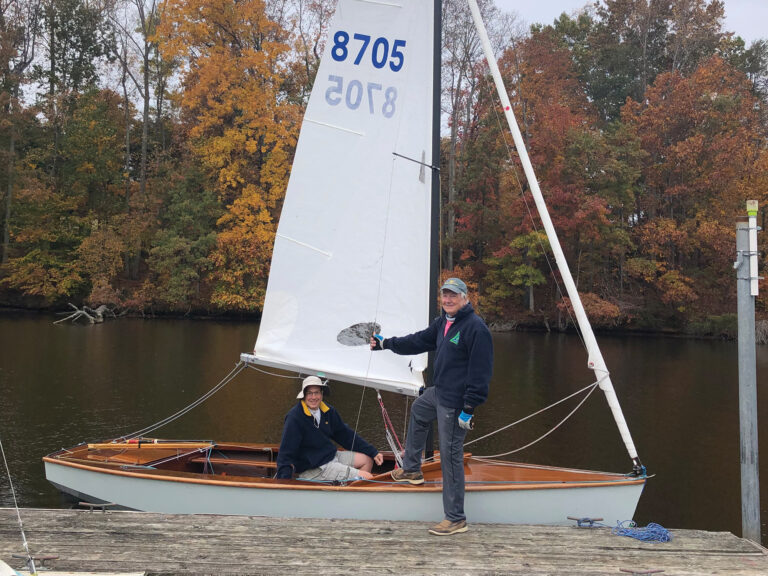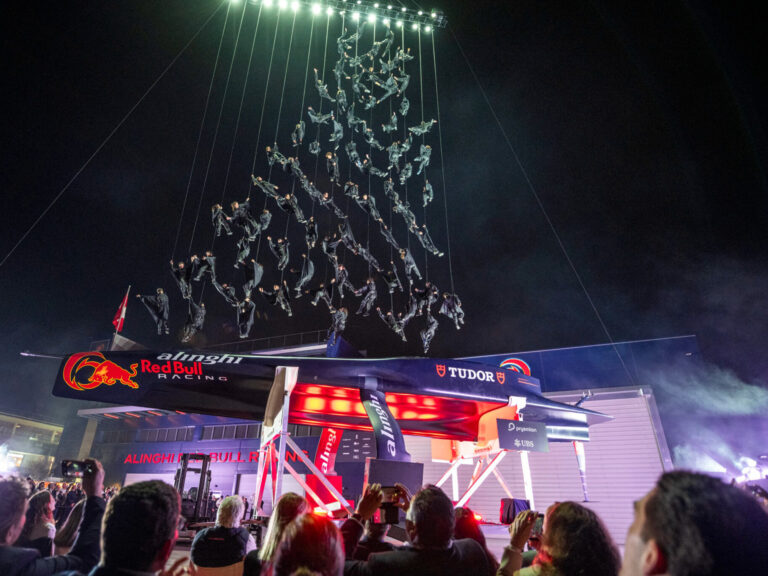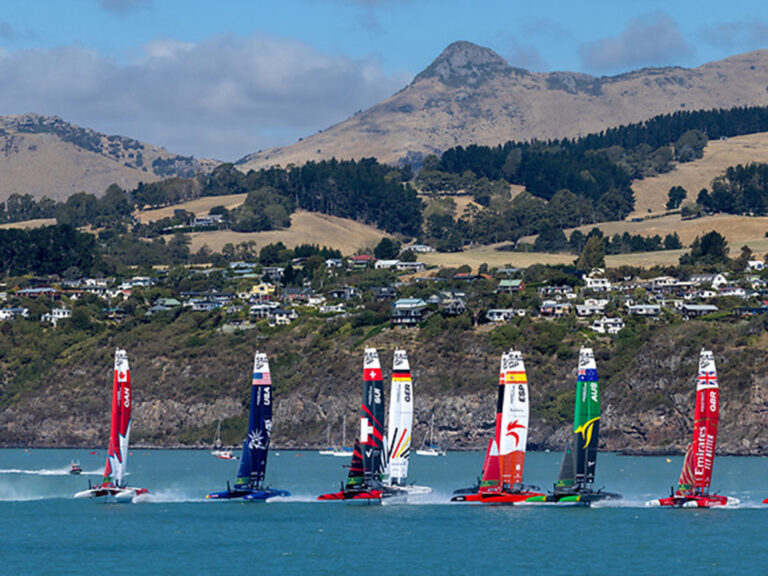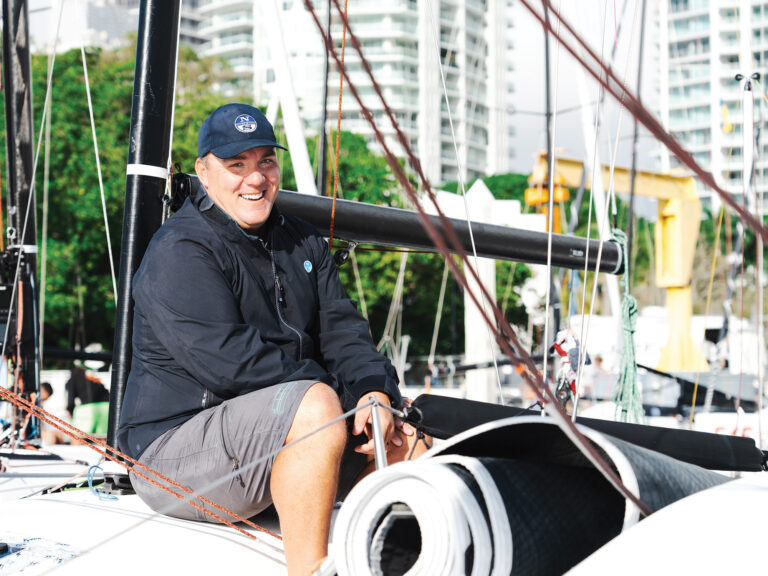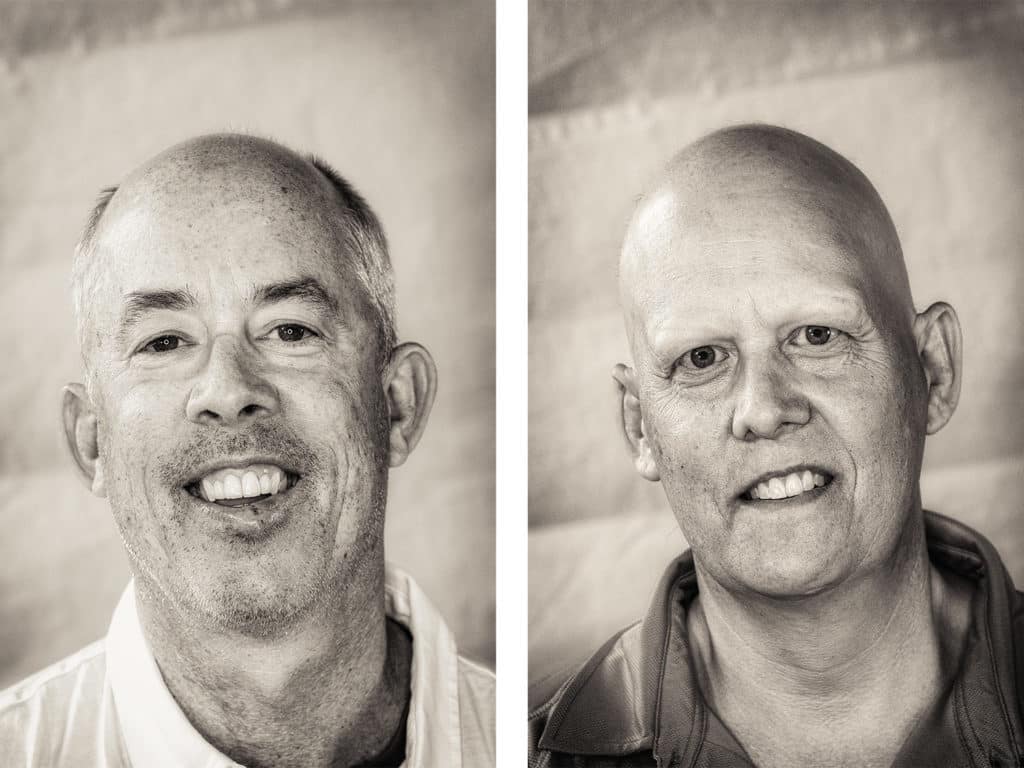
Dave and Peter Askew —brothers in their mid-50s, with two years between them—have been distance racing for decades, their accomplishments on the water blossoming in both scale and caliber. Over the past two years, however, the Askew brothers have progressed well beyond the relative comfort and familiarity of the Great Lakes, questing top results in each and every one the premier international offshore races. To do so, the brothers recruited a crew deep in experience, acquired a used Volvo 70, and laid out an ambitious plan to win all the Northern Hemisphere’s greatest races: the Caribbean 600, the Transatlantic Race, the Rolex Fastnet Race and the Rolex Middle Sea Race. They came close, winning three of four (a drifter of a Middle Sea Race was not Volvo 70 conditions).
“Winning the Fastnet was—by far—the biggest sailing event of my entire life,” Peter says. “I remember watching it as a kid. It was always a race I paid attention to.” He can now be reminded of the race every time he looks at the inscription on the Rolex timepiece he now wears proudly on his wrist. “It’s a point in my career I will never forget.”
I first met the Askew brothers when we crewed for Bill Martin in the 1984 Canada’s Cup. As youngsters, they’d raced Lasers, Interlakes and Flying Juniors, but that year, they were in college and spent the summer working on Martin’s Two-Tonner, Stars & Stripes. We won a grueling challenger trials but lost in the final match. They were enthusiastic and reliable crewmates, and over the next few summers, they delivered and worked on raceboats throughout the Great Lakes.
David Askew considers his experiences with Bill Martin as his true formative years, as well as the stepping-off point for a long-term sailing career. “The next thing I know, I’m racing with all these guys I idolized as a kid,” he says. “I was in the candy store, and I wanted to be the best sailor I could.”
He laughs now, he says, because he never wanted to own his own raceboat. Why would he when had easy access to top boats raced by top-shelf crews?
The Askews had solid sailing backgrounds before launching their business careers. In 1980, their father, Lawrence Askew, founded USALCO, a chemical company that processed aluminum and other materials used to purify the lake waters of the Midwest. The company eventually moved to Baltimore and grew. The brothers each graduated from the University of Michigan, with David earning a mechanical engineering degree and Peter a degree in anthropology. Both married at relatively young ages, raising families as they built the company. Competitive-sailing aspirations shifted to the back burner.
They’re now equal partners in their father’s company, which currently employs 250 people and produces more than a million tons of chemical products per year. The company’s move to Baltimore allowed David to settle in Annapolis, closer to the action. Ultimately, it was David’s wife, Sandy, who suggested they get back into sailing.
“We should get a boat because our kids ought to be brought up as sailors,” she suggested.
David agreed, of course, and they bought a J/120. “That’s our humble beginning,” he says. “We just kind of progressed through bigger boats. It was always a family thing.”
When they’re not on the helm, they’re grinding winches or trimming sails. Sheets are never cleated.
They campaigned a J/122 before eventually making the grand-prix leap to the TP52. “My brother had more time to sail with me,” David says. “We had a dream as kids of doing the big ocean races. We knew we needed the right boat.”
They then set their sights on the Transpac Race and acquired Bella Mente, built in 2008 by American yachtsman Hap Fauth. “[He’d] done everything to it to make it a good downwind boat for the Transpac,” David says.
In their first try, they won the Barn Door Trophy, awarded to the first boat to finish. “[At the time] we were building up a pretty good crew who were always keen to do long-distance races, so in fall 2017, we thought we needed to get a Volvo 70,” David says.
They purchased the highly optimized Groupama 4, winning boat of the 2011-2012 Volvo Ocean Race, skippered by Frank Cammas. “Relative to the cost of building a new boat, it was cheap,” David says. “The 70 is the perfect size. The real expense is campaigning the boat and hiring the crew.”
With the exception of themselves, they now race with a team of 13 professionals and specialists. “On a boat with so few people, everyone on the boat has to work well together,” David says, “although everyone has their little quirks. It’s like a small military squad. They can all do each other’s jobs, but they specialize in certain areas, like mechanical systems. They can keep a boat going no matter what happens.”
Where do the Askew brothers fit into the squad? “Our main job is to make sure the boat gets to the starting line,” David says, with a laugh. “We write checks.”
Kidding aside, he says they both steer, spending about half of each watch on the helm. When they’re not on the helm, they’re grinding winches or trimming sails. Sheets are never cleated. “We work the boat really hard,” David says. “We have to be in some kind of shape to grind winches. If someone is missing from the handles, you are expected to jump in there.”
For Wizard’s 2019 trophy haul, the crew roster included Volvo Ocean Race veterans Charlie Enright and Mark Towill. Will Oxley, of Australia, a highly experienced veteran of the offshore game, is the team’s navigator. Richard Clarke, of Canada, an Olympic Finn sailor and round-the-world veteran as well, is also a key member of the team. Roy Pat Disney and Ralf Steitz joined the Wizard crew for the Fastnet Race.
“The number of people we have sailed with over the years has been absolutely amazing,” Peter says. “It’s special to sail with guys with so much experience, guys who are at the top of their game.”
Naturally, surrounded by such experience, the ride is often thrilling, Peter says. “After three days of going 28 knots, you get a little frazzled, but you never feel out of control,” he says. “We take a reef pretty early in 20 to 22 knots.”
His brother has a different take: “The amount of energy this boat has is amazing. I couldn’t even look up at the top of the mast when we were reaching along in 30 knots of wind because it was moving around like I’ve never seen.”
During the 2018 Rolex Sydney Hobart Race, David recalls the adrenaline of racing in 30 knots: “The sea state was all screwed up, and we were planting the bow into the waves. Our Number 3 [headsail] exploded. Everyone looks around and says, ‘Hmm, maybe that’s telling us something.’ The next thing might be the rig, so we throttled back. To me it seemed like the boat might explode. Literally. I couldn’t understand why the boat did not break; it just kept going.”
David admits it took several more races to finally feel comfortable with the energy in the boat and its ability to withstand punishing conditions. “The guys who race these boats around the world understand this, and that is why they are able to do 600-mile days,” he says. “With this type of sailing, the weakest part of the boat is the crew.”
While the Volvo 70 was essentially a one-design purpose-built boat for the round-the-world race, the Askews have had to adapt it to handicap-rating rules, which is a challenge unto itself, given the different rules used by events. “For different regattas we use different rules,” David says. “We have different modes regarding sail selection. For example, if we are going to be doing windward-leeward courses, we will sail with a masthead code zero; but if we are going into the North Atlantic, then we have a lot of reaching sails. We have a thing called a ‘J zero’ that we put out on a strut to leeward. In ORR, we can’t use it. I wish there were just one handicap-rating rule, but it seems every part of the world has its own rule.”
The Askews and their team have received several honors for their achievements. World Sailing presented them with the 2019 Hempel Team of the Year Award; the New York YC awarded the brothers with the Mosbacher Trophy; the Royal Ocean Racing Club named Wizard the RORC Yacht of the Year; the Bayview YC honored them with the R.W. Jeffery Memorial Trophy; and, at this writing, the two brothers together are one of three finalists for US Sailing’s Rolex Yachtsman of the Year award. For these motivated sailors, 2019 was an outstanding year, with many goals accomplished, and they will continue to be in the forefront of racing for the next several years, they say. David will join Sandy on her IC37, while Peter plans to continue campaigning Wizard in the Pacific and Caribbean.
Yes, for the Askew family, the sailing never stops.

